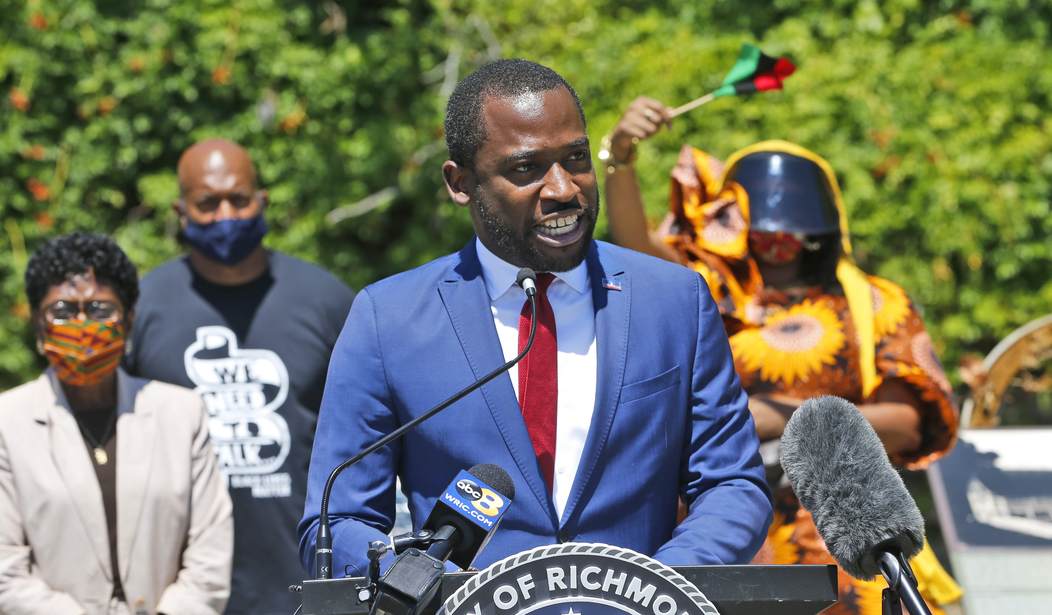Project Exile is a crime-fighting strategy that utilizes the federal court system to prosecute violent felons caught illegally possessing guns, and it’s got a great track record around the country when it comes to reducing violent crime. In fact, the first Project Exile program took place in Richmond, Virginia in the late 1990s, and within a year of its implementation homicides had declined by 40%.
Murders in Richmond are on the upswing, and 2021’s total was the highest in more than two decades. But rather than rebooting Project Exile, Richmond Mayor Levar Stoney is choosing to spend $500,000 on a gun “buyback” to fight crime instead.
The mayor’s office did release a statement on reviving Project Exile, saying:
Project Exile was a success in the 90s, but since that time cities have learned how to implement other effective strategies. We believe investing in a holistic approach to caring for our community – including a Gun Violence Prevention program that provides wrap around support services, community intervention, trusted messengers and initiatives like our Gun Buy Back program — can make a significant impact in preventing violence and making our neighborhoods safer.
There are zero studies showing gun “buybacks” reduce violent crime, suicides, or accidental and negligent shootings, so I would challenge Stoney’s office to provide a single shred of evidence of their supposed effectiveness.
I suspect the real reason that Stoney isn’t interested in Project Exile is because it uses police, prosecutors, courts, and federal prison to curb violent crime. Despite Joe Biden’s insistence that Democrats aren’t interested in defunding the police, there are still plenty of Democrats in charge of progressive cities and blue states that aren’t keen on using policing as a primary public safety strategy. Instead, as Mayor Stoney, referenced, the preferred strategy is a “holistic approach” that uses things like violence interrupters and gun buybacks to hopefully prevent crime without getting the cops and courts involved.
There’s certainly a place for these types of community-oriented programs, but let’s be honest; there are some violent offenders who have no interest in changing their ways and no amount of outreach is going to have an impact. Should we encourage individuals to exit gangs and the drug trade and provide them with help if and when they choose to do so? Absolutely. But that doesn’t mean we can be naive or foolish enough to think that every offender is going to avail themselves of those opportunities when they have the chance, and for those who continue to inflict pain and misery on their communities, there should be swift and certain consequences.
Last summer, one of my son’s good friends from high school was murdered on a Richmond street while he was taking out the trash. It’s been ten months now and no one has been arrested for that crime. No violence interrupter has come forward with information that could lead to a suspect, no “trusted messenger” has uncovered evidence of who the shooter was, and no “buyback” is going to bring his family any closer to justice. Police haven’t been able to make much progress either, unfortunately, and I can’t help but believe that a big part of the overall crime problem is that the mayor doesn’t want a “law enforcement approach” to public safety.
Richmond’s going to spend $500,000 on its compensated confiscation efforts, and while I’m sure the city will collect hundreds of guns, I don’t think it’s going to lead to a noticeable or statistically significant decrease in violence. Sadly, until the city has leadership that’s willing to get serious about violent offenders themselves the waste of time, money, and (most importantly) lives is going to continue to plague Virginia’s capital city.









Join the conversation as a VIP Member